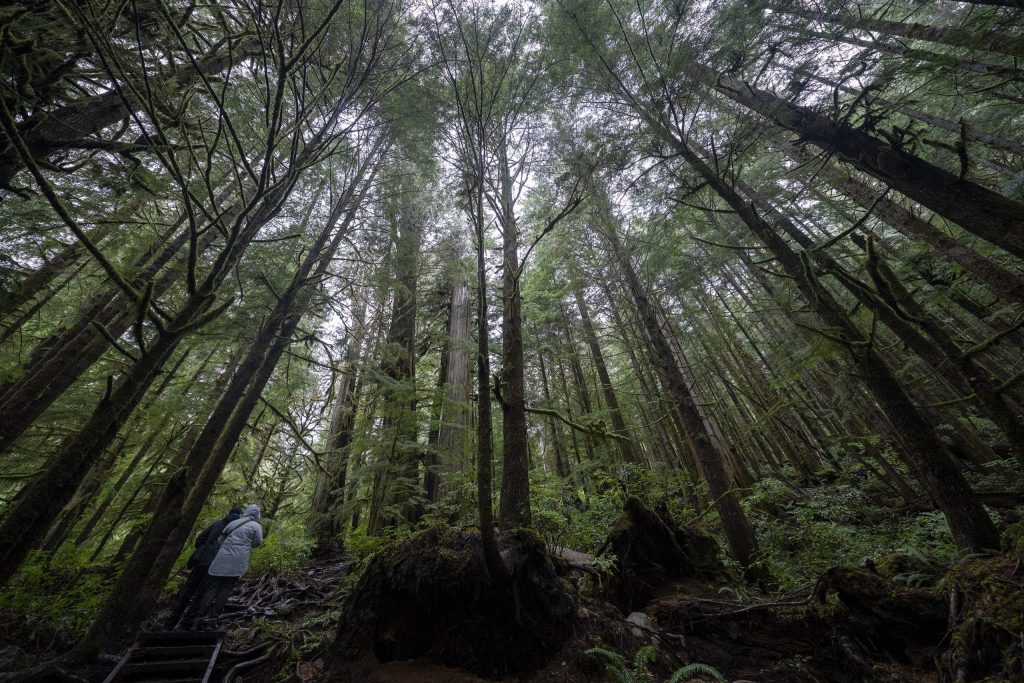Canadians want forest protections but are concerned about jobs: survey

Posted March 27, 2022 9:00 am.
Canadians of all political stripes and from all regions support greater protection for the country’s forests but are concerned about what that could mean for the economy, according to a new survey.
The survey, commissioned by three environmental groups days before Ottawa releases its climate plans, indicates that 83 per cent of Canadians agreed the federal government should do more to protect forests and wildlife.
The support reached 89 per cent in Quebec. Even on the Prairies, where support was lowest, almost three-quarters of the respondents agreed.
Two-thirds of Conservatives wanted to see more protections, a number that grew to 91 and 95 per cent among Liberals and New Democrats.
“The breadth of support across regions and political affiliations was a little bit surprising,” said Michael Polanyi of Nature Canada, which commissioned the Ekos poll along with the Natural Resources Defense Council and Nature Quebec.
But the same poll found 67 per cent were at least slightly concerned about the economic impact of those protections — a figure that balloons to 86 per cent among Conservatives.
“There’s some concern,” Polanyi acknowledged, although he pointed out that more than a quarter of respondents to that question rated their concern as slight.
The poll, which surveyed 1,036 Canadians between March 11-18, comes days before the federal government is expected to reveal its Emissions Reduction Pathway, a formal plan to achieve net-zero greenhouse gas emissions by 2050. Polanyi said if those goals are to be met, forestry will need a harder look.
“It has lacked attention.”
While the national greenhouse gas inventory says forestry released 140 megatonnes of carbon dioxide a year, Polanyi said that’s too low. In October, Nature Canada released research suggesting that’s an 80-megatonne underestimate.
Replanting harvested trees doesn’t make the industry carbon-neutral, Polanyi said. It takes a decade for a seedling to even start sequestering carbon, while the carbon stored in a mature tree all eventually goes into the atmosphere no matter how it’s used.
For that reason, Polanyi said, companies burning wood pellets for energy should have to pay the same carbon tax as those burning coal or gas. The poll suggests three-quarters of Canadians agree.
“Canadians want a level playing field.”
Industry spokespeople say carbon releases are fully accounted for through methods developed by federal scientists. Canada’s accounting methods have been adopted by 25 countries and approved by the Intergovernmental Panel on Climate Change, they say.
The Forest Products Association of Canada says forest management already mimics natural processes such as fire losses in an attempt to keep ecosystems functioning normally.
Still, the survey suggests strong support for more forest protection.
Almost two-thirds said conserving old-growth is important. Nearly three-quarters said it was important for Canada to lead the world “by protecting its remaining intact boreal forests” — an opinion shared by almost half of Conservative respondents.
Polanyi said the Liberals’ plan to reduce overall greenhouse gas emissions will have to include measures for the forestry sector if it’s going to work.
“This report coming out next week is going to be critical,” he said.
“Coming up with actions to incentivize a lower-carbon logging sector is an opportunity to make sure all sectors are contributing.”








